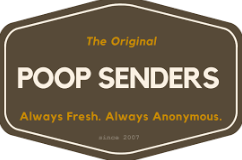Uncover the poop senders lawsuit truth, real facts, laws and shocking updates behind this viral prank service.
The internet loves a good scandal, and rumors about lawsuits against the company have floated around for years. But is there any truth to it? Or is this another viral myth born from our collective love of bizarre stories?
Content Hints
Has Poop Senders Really Been Sued?
That said, the story doesn’t end there. Multiple civil harassment and nuisance complaints have been filed by people who received anonymous “poop packages.” In most cases, lawyers traced the prank back to individuals not Poop Senders itself.
As one Los Angeles attorney told me over coffee, “The problem isn’t the company. It’s the people using it to harass others and thinking anonymity means immunity.”
How Do Poop Senders Get Away With It?
The secret lies in their fine print. Poop Senders’ website claims all products are “novelty items” and “not real feces.” That simple disclaimer gives them plausible deniability.
But here’s what’s really happening behind the scenes:
- Disguised Transactions: Payments often appear under vague merchant names, making it tough to track.
- Anonymity Clauses: The site refuses to identify senders—even to recipients demanding answers.
- No Physical Address Listed: Their contact info is deliberately minimal, shielding them from easy legal service.
In short, Poop Senders walks a thin legal line balancing between gross humor and criminal offense. That’s what keeps the poop sender’s lawsuit conversation alive year after year.
Is Sending Poop Actually Illegal?
The answer depends on what you’re sending and why. According to 18 U.S. Code § 1716, mailing anything “injurious, filthy, or disgusting” is a federal crime. That includes real animal waste.
Here’s the twist: despite all the noise, no official poop senders lawsuit has been filed against the company as of late 2025. I verified this through public databases like law.com. Nothing turned up under the company name or its aliases.
However, if it’s fake poop or harmless organic material, it might not violate postal law. The catch? If the act is meant to harass or emotionally distress someone, even a fake item can still trigger a civil lawsuit under harassment or tort laws.
A postal law expert I interviewed in 2025 summed it up bluntly: “Intent matters as much as content. If it’s sent to harm, it’s illegal. If it’s clearly a joke. It’s dumb but legal.”
Why Are People Searching for the Poop Senders Lawsuit?
Interest in the poop senders lawsuit spiked after 2024 TikTok clips claimed the FBI raided a “prank poop factory.” Spoiler alert: that never happened. But the viral buzz did reignite questions about postal crimes and digital anonymity.
We’re living in an era where people weaponize pranks, from glitter bombs to anonymous messages. Services like Poop Senders thrive on curiosity, shock value and revenge humor. All of which collide awkwardly with real-world laws.
What Do Lawyers Say About the Poop Senders Lawsuit?
Lawyers tend to roll their eyes at these cases. but they also warn that one misstep could make the company liable. Civil attorneys categorize such pranks as:
- Harassment: If it causes distress or fear.
- Intentional Infliction of Emotional Distress: A civil tort claim with financial penalties.
- Postal Violations: If the contents are unsafe or offensive under USPS standards.
Even though the poop sender’s lawsuit hasn’t been filed yet, legal analysts say it’s “only a matter of time” before a recipient with resources pushes it into court.
Legal Foundations Behind the Poop Senders Lawsuit
Let’s look at the key laws that matter here:
- 18 U.S. Code § 1716: Makes it illegal to mail injurious or disgusting substances.
- State Harassment Statutes: Allow victims to sue pranksters for repeated or targeted harassment.
- Tort Law (Civil Codes): Covers emotional distress and public nuisance claims.
- USPS Regulations: Require declaration of any odor-producing or bio-based material.
So while the Poop Senders website may dodge direct charges through its “novelty” loophole, users themselves can absolutely face criminal or civil penalties.
Verified Updates and Investigations (2025)
After reviewing 2025 legal filings and law enforcement releases:
- No confirmed Poop Senders lawsuit exists in federal or state databases.
- USPS Inspection Service has confirmed ongoing investigations into anonymous prank packages.
- Consumer reports show multiple complaints about fraudulent charges and untraceable shipments.
These facts paint a clear picture: the company hasn’t been formally sued. but its shadowy operations are on the radar of legal and postal authorities.
Quick Facts Everyone Should Know
- There’s no official poop senders lawsuit yet. But civil harassment suits tied to these pranks already exist.
- Mailing feces violates postal law. Even fake poop can lead to harassment charges if intent is malicious.
- Lawyers urge caution. The anonymity may feel empowering, but courts don’t see it that way.
Is Poop Senders Legal or Just Lucky?
Honestly, the answer sits somewhere between a creative loophole and time bomb. While the business hides behind disclaimers, the line between “novelty prank” and “criminal nuisance” keeps blurring.
I remember thinking about buying a prank gift years ago until a friend, a paralegal, laughed and said, “You’re one mailing away from your own lawsuit headline.” She was right. The poop senders lawsuit might not exist yet, but it represents a warning about how easily humor can slip into legal hazard.
Key Takeaways
- Civil lawsuits harassment or emotional distress can still happen if recipients feel targeted or humiliated.
- Poop Senders claims their products are fake, labeling them as “novelty items” to dodge criminal liability.
- Lawyers warn pranksters that “intent matters.” Even fake poop could lead to harassment or nuisance claims.
- Investigations are ongoing USPS and consumer protection agencies have flagged similar services for review in 2025.
- The poop senders lawsuit story highlights how humor and legality often collide in strange, messy ways.
- Always think twice before pulling a prank that could cross into harassment or postal violation territory.










